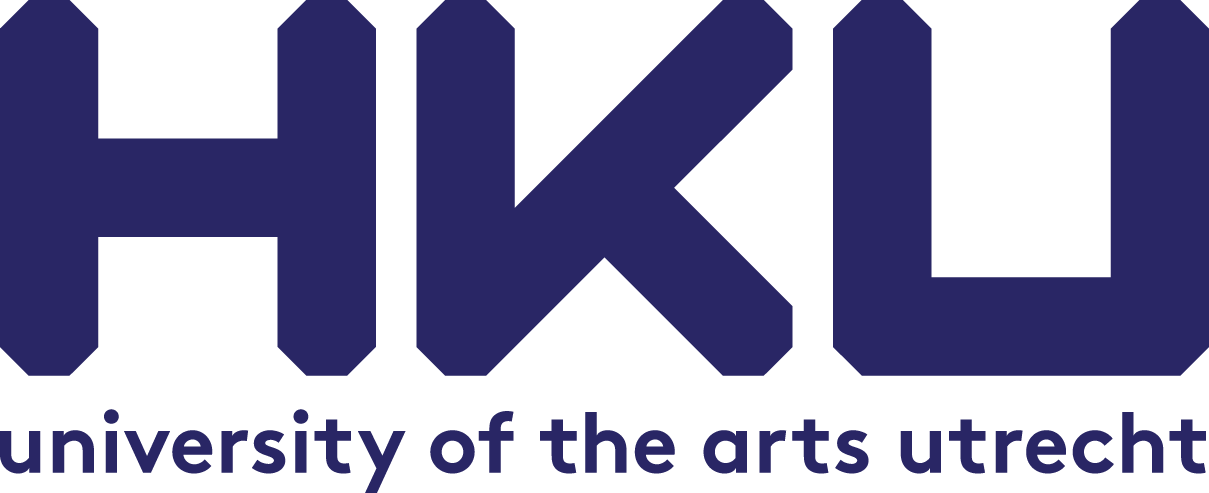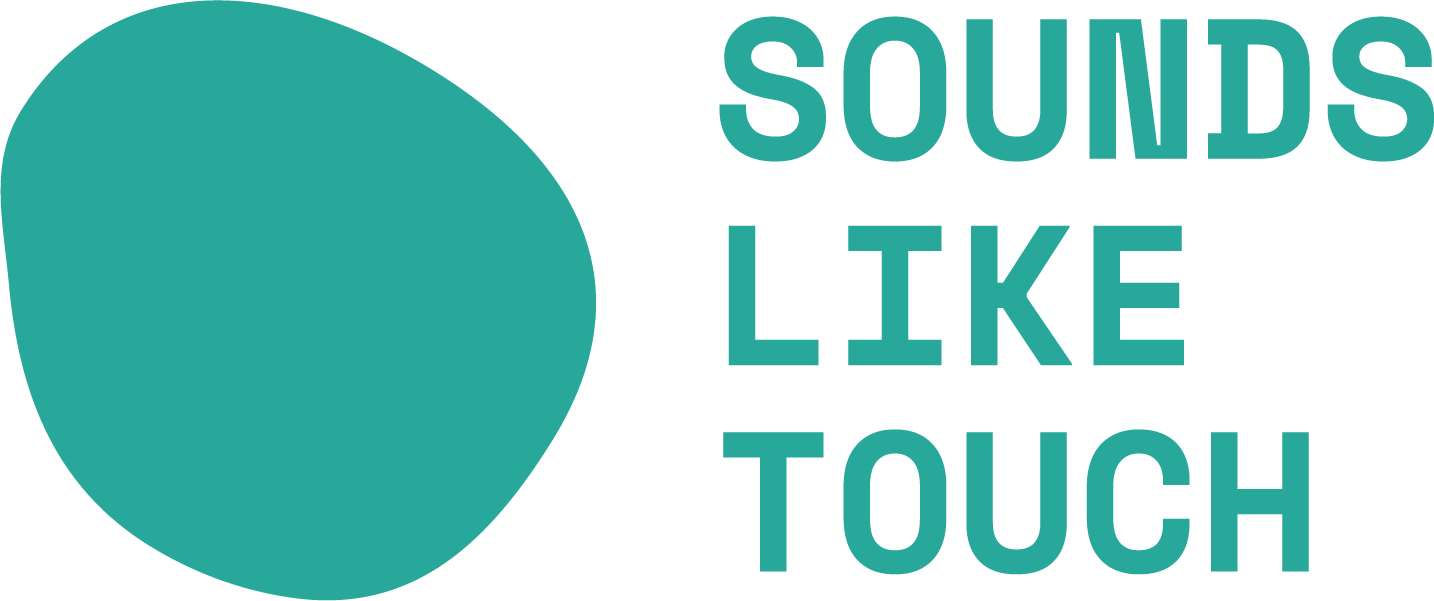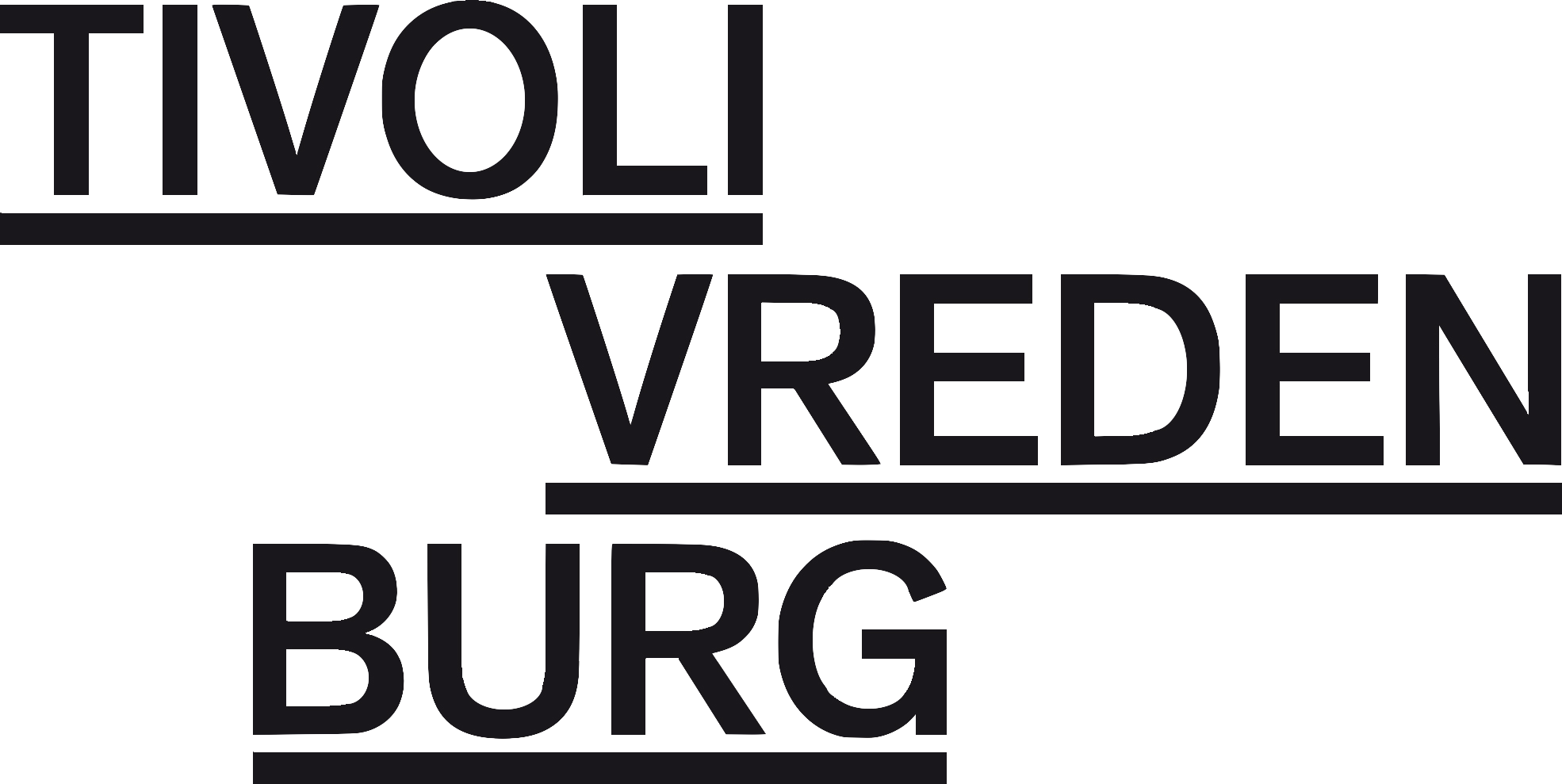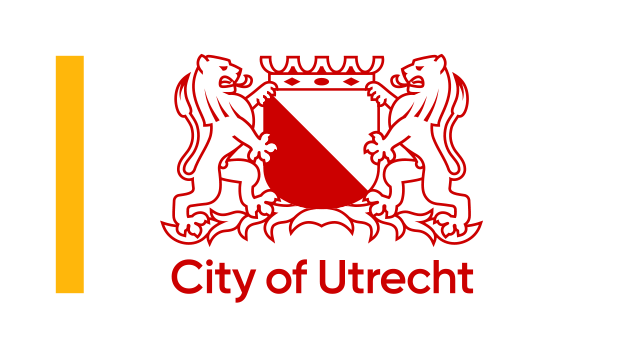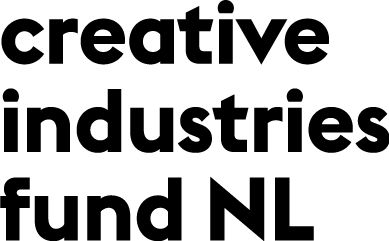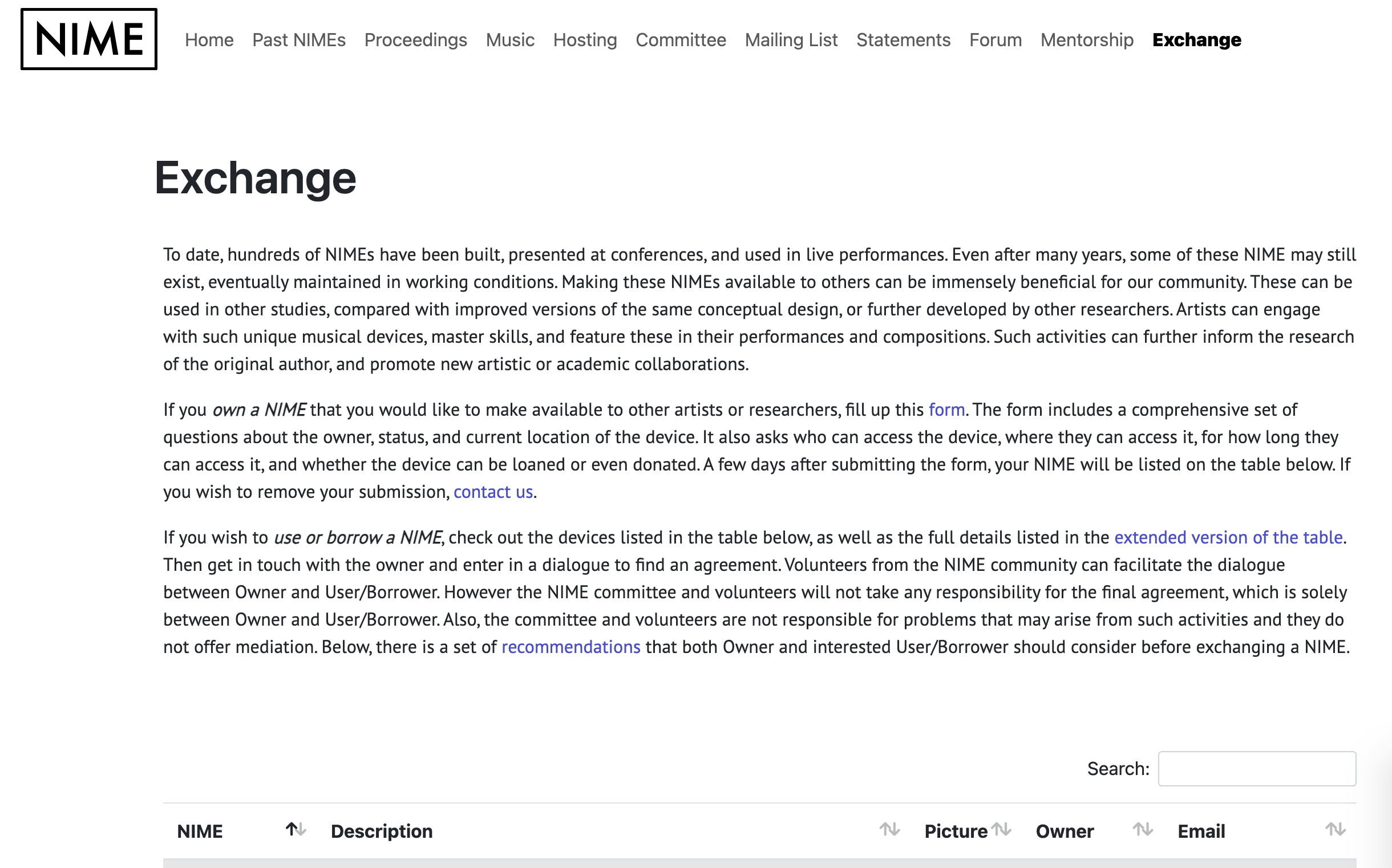
NIMExchange: Promoting the Sharing of Existing NIMEs
Abstract:
Over the years, numerous NIMEs have been built, presented and used in live performances. Many of these NIMEs may still be maintained in working condition. Providing access to these NIMEs could hold immense benefits for our community. This workshop introduces an initiative intended to facilitate and encourage the exchange of existing NIMEs. We aim to engage in discussions and collect feedback to shape this initiative inclusively, embracing a diversity of perspectives. Additionally, we encourage attendees who own NIMEs to commence populating a database of NIMEs that other researchers or artists can access.
Over the past year, a team of six volunteers from the NIME community has been working to develop strategies and a platform to facilitate the exchange of existing, often unused, NIMEs. The team members are Stefano Fasciani, Marcelo Wanderley, Raul Masu, Holland Hopson, Isabela Corintha Almeida, and Cagri Erdem. They have designed the following:
• A form for NIME "owners" to fill out, which includes an extensive set of information about the available NIME, exchange options and availability, and any interest in potential collaborations.
• A semi-automatic system to display on the NIME website detailed information on instruments available for "exchange"—a term that encompasses both the borrowing of a NIME or using it on-site where it is stored (meaning either the instrument or the researcher/artist would relocate).
• A set of recommendations for NIME "owners" and "users/borrowers" that outline important considerations to discuss or agree on before the exchange.
Biography
Stefano Fasciani is an Associate Professor in Music Technology at the University of Oslo. He is the leader of the Master’s programme in Music, Communication and Technology (MCT), and the head of the Creative Computing Oslo Hub (C2HO) network. He has an academic background in electronic engineering and professional experience in the semiconductor industry and in the club scene. His research and personal interest are focused on technologies for sonic arts, sound synthesis and analysis, machine learning for sound and music, musical human-computer interaction, networked music performances, audio digital signal processing, and real-time embedded systems.
Holland Hopson is a sound and media artist, composer and improviser. A multi-instrumentalist, he usually performs on clawhammer banjo and electronics. Holland often augments his instruments with custom-designed sensor interfaces and performs with his own highly responsive, interactive computer programs. Holland has performed in Australia, Europe and North America along with notable experimental and outsider musicians such as MacArthur Genius Grant winners Anthony Braxton and George Lewis, live electronics pioneer David Behrman, sonic meditator Pauline Oliveros, mutantrumpeter Ben Neill, network music trailblazer Tim Perkis, free-improv innovators LaDonna Smith and Davey Williams, and others. Holland has held residencies at the Atlantic Center for the Arts, Florida; at LEMURPlex, Brooklyn, N.Y.; and Harvestworks Digital Media Arts, New York. Holland is also assistant professor of arts entrepreneurship in New College and a Fellow of the Collaborative Arts Research Initiative (CARI) at UA.
Çağrı Erdem is an improviser and composer, developing much of his music alongside musical artificial intelligence (AI) and human-computer interaction (HCI) research. His M.Sc. focused on creating biosignal-based musical interfaces, and his Ph.D. at the RITMO centre, University of Oslo, explored human-machine co-performance. His dissertation examined the interplay between human performers and AI in music, contributing to the field by integrating AI in co-adaptive, embodied performance contexts. As a postdoctoral fellow, he continues to explore ML/AI in multisensory interaction and performance assessment. Erdem also co-founded A.I.D, a group focused on performance arts, and is actively involved with ROOT radio.
Isabela Corintha is a PhD student in Multimedia in Education at the Department of Communication and Arts at the University of Aveiro with knowledge in the areas of Multimedia, Music and Arts in general. Her research focuses on embodied and enactive music cognition approaches to digital musical instrument design. Isabela’s current interests include the creation of original Brazilian music genres dataset for Automatic Music Generation (AMG).
